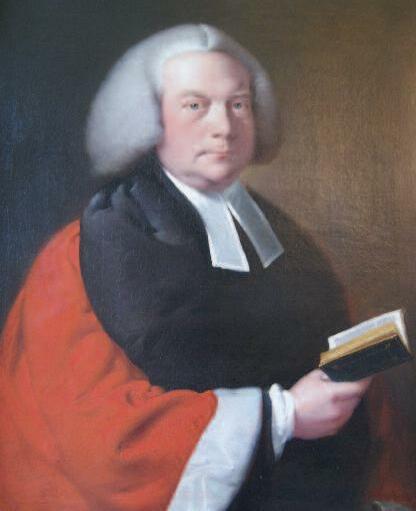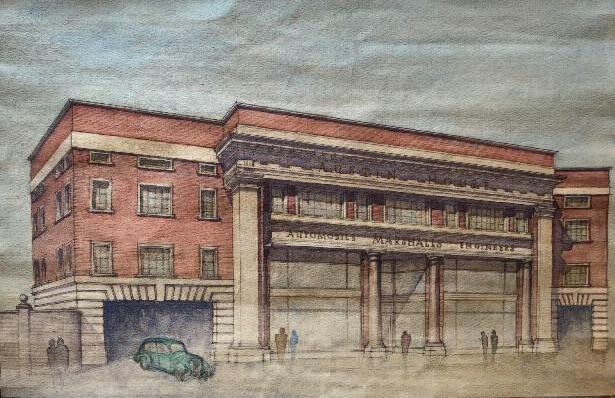
9 minute read
The Libraries and Archives
The Library and Archives
Michael Edwards, Fellow Librarian and Keeper of the Old Library; Rhona Watson, Quincentenary Librarian; and Robin Payne, College Archivist
Advertisement
The Old Library
Post-pandemic, the Old Library has reopened fully and is now welcoming a higher number of research scholars than ever, ranging from PhD students to senior scholars, many from beyond the UK. Amongst other topics, researchers have used the Old Library ’ s collections to work on early modern book bindings, the publications of the Dutch philosopher and jurist Hugo Grotius (1583-1645), and book ownership by women in the 17th and 18th centuries. An increasing number of researchers are interested in the recently identified books from the library of the philosopher Anne Conway (1631-1679). As Keeper, I am working on a research project to identify more of Conway ’ s surviving library. I hope to connect the Conway books in the Old Library to fragments of her collection elsewhere in the world.
Supporting research of this kind depends on accurate and detailed catalogues of our holdings. Put simply, researchers cannot use what they, or we, cannot easily find. The current card catalogue is helpful, but no longer ideal. The project to catalogue the Old Library ’ s holdings of printed books online, carried out by Assistant Keeper Chris Barker, is continuing. It is revealing new and important information about our printed collection and its provenance that will be of immense value to current and future scholars. Chris ’ s cataloguing work is opening the library to new scholarly perspectives, and we hope that it will encourage greater use of the Old Library ’ s collections in the future.
Librarians and researchers are interested in books not only as texts, but as material objects that bear the traces of reading and ownership. Marginalia, annotations, and other evidence of who owned and who read our books are increasingly attracting readers to the Old Library. For this reason, in a digital world where scans of many 16th and 17th century books are readily available online, rare books and manuscript collections like ours continue to have a crucial role. Despite a proliferation of online resources, every copy of an early modern book is distinctive, and the unique evidence it holds will remain important.
The cataloguing project, and the Old Library ’ s recent focus on exploring the provenance of our books, continues to reveal interesting stories about the paths they took before they reached the Old Library. Two examples show the value and interest this kind of collection exploration can have.
The first is of a prolific early18th century donor to the Old Library, Lionel Gatford. Gatford was a London cleric, Rector of St Dionis Backchurch from 1680-1715, and Treasurer of St Paul’ s from 1714. He left his large theological and philosophical library of more than 1600 volumes to the College on his death. Gatford’ s books are still identifiable by the distinctive printed paper labels pasted into them. In one sense, Gatford’ s books are a monument to his generosity to the College, but they also tell other stories. Earlier in his career, in the 1690s, Gatford served as a chaplain of the Anglican Church in Hamburg (set up in part to cater to English merchants). Some of his books were acquired during his time in Germany, often through gifts or second hand. They connect the Old Library to a rich strand of German and central European learning:
Gatford’ s surviving letters show that he corresponded with German scholars. One book in particular, a copy of the 1697 Amsterdam edition of Joannes Clericus, Ars Critica, an erudite work of biblical scholarship, bears a formal but friendly inscription from the medic John Brown. Gatford’ s time in Hamburg and the friendships and intellectual connections he made there long predate his gift to the College, but evidence of them survives in the Old Library. The second example concerns Lynford Caryl, Master of Jesus from 1758 to 1781, who took a keen interest in the College Library. Caryl was an efficient administrator rather than a scholar, who worked to order and inventory the College and University archives. His neat handwriting is still evident throughout the College Archives. Caryl’ s main impact on the Old Library was to remove large numbers of books from it, either on grounds of space or taste and relevance. We still have his list of ‘Books removed out of the Library, 1772’ . Perhaps regrettably for later Keepers of the Old Library, the books Caryl removed were some of the oldest (and now rarest) in the collection. As well as duplicates, his list includes 15th century books from the earliest decades of printing. Caryl’ s motives were probably good; space was tight in the Old Library, particularly after Gatford’ s monster donation, and the books on his list were, to his mind and that of the Fellows, no longer relevant. Modern sensibilities are somewhat different, and we no longer discard early printed books from the Old Library… It has been less well recognised that Caryl also donated some of his own books, chiefly collections of sermons and theological treatises. All bear his neat inscription, often with his name crossed out. His impact on the current collection is, happily, not just negative.
Caryl and Gatford are just two former owners whose stories will be revealed as the printed collections are catalogued in more detail. The recent discovery of Anne Conway ’ s books shows that the owners we will identify will not all be men, or people with a direct connection to the College. Through its books, the Old Library is a quiet meeting place for books, and past lives, from across time and space.
Lynford Caryl, Master of Jesus 1758-1781 Inscription in Lionel Gatford’s copy of Joannes Clericus, Ars critica (Amsterdam, 1697)

The Quincentenary Library
The Quincentenary Library has continued to support students ’ learning and research in College, as well as providing advice and light reading. The library team –Rhona Watson, Chris Barker, Alex Perkins and Adam Williams – have worked hard to bring books and other learning resources to the College community. In-person visits to the Quincentenary Library are back to pre-pandemic levels, although electronic books are becoming a key part of student reading lists.
Alex Perkins retired this summer after more than 30 years ’ service in the Quincentenary Library, and an association with Jesus that dates back to his student days. His commitment to the Quincentenary Library will be hard to replace. Georgiana Datcu, who joined the College in August, will take over Alex ’ s role in classifying new books and focus on providing study skills support to undergraduate and postgraduate students. We welcome her to the College and look forward to a new chapter in the Quincentenary Library ’ s history.
College Archives
In May we said goodbye to the Archivist, Robert Athol, who left to take up the position of Archivist for Chivas Brothers. Robert made a massive contribution to developing the Archive in his time here and we are very grateful for all his hard work and wish him well in his future career. The new Archivist started in August and will be a familiar face to some. Dr Rob Payne joins us from Cambridge University Hospitals (Addenbrooke ’ s) where he has been the Archivist for three years and before that he was the Assistant Archivist and Estates Cataloguer here at Jesus. Katy Green, the Assistant Archivist, continues to work part-time and we thank her for covering in the short absence between Archivists.
Volunteers have continued to catalogue the 18th-20th century receipts relating to goods and services provided to the College. This gives valuable information about the history of the College and is also proving to be a rich resource for local studies. A special thanks go to Roisin Donohoe and Grace Whorrall-Campbell who are the longest serving volunteers. With the changeover in staff, the number of volunteers working in the Archive has reduced but the project will be relaunched again in Michaelmas Term. One new volunteer has been taken on this year, Katarina Corovic, who is a professionally qualified paper conservator. She has been cataloguing architectural plans of the College site, particularly North Court. We are very grateful for all her work this year.

Over Summer 2022, Rose Asquith and Sophie Beckingham, two student interns, have focused on the Works of Art section of the College Collections database. They have enhanced catalogue entries by drawing on information found in the Archives, and adding images of many of the College ’ s works of art. This will greatly assist the Curator of Works of Art in her role and will give us a more complete history of our collection.
Katy Green, the Assistant Archivist, continues to catalogue the College estate papers. Her focus this year has been on the streets around the College – Park Street, New Square and Jesus Lane. The history of Jesus Lane has been particularly interesting as the College Archive holds records dating back to the 15th century.
We have continued to receive donations, including photographs of the football team from the 1950s, programmes from musical performances and an athletics medal for the long jump from 1922. Archives turn up in all sorts of places; in October 2021, we were alerted to a photograph album with Jesus College embossed on the cover on sale in the Oxfam shop in Bridge Street. After some investigation we were able to identify the owner of the album as Ronald Godfrey Morrell, a Classics student during the Second World War, and resident of C1 First Court. For more information on this album please see the Archive of the Month: October 2021: ‘Whose Album is it anyway ’ on the Archive page of the College website: https://www.jesus.cam.ac.uk/articles/archive-month-whosealbum-it-anyway
The Archive has completed the digitalisation of a number of old recordings (reel to reel, cassette and vinyl) in collaboration with Essex Record Office. These recordings include performances by the Musical Society from the 1950s and 1960s which have not been listened to for a long time. The Archive also holds files, scores, costume designs and some photographs for these productions, and the addition of these new sound files has really brought the whole performance to life. You can hear one such recording here: https://collegecollections.jesus.cam.ac.uk/index.php/recording-2
Gifts to the Archive are always hugely appreciated, and any further donations of College-related items from alumni are always greatly received. The catalogue descriptions for the collections and documents above mentioned can be viewed on the new online archives catalogue at: https://collegecollections.jesus.cam.ac.uk/index.php n

A small selection of the records that we had digitalised










